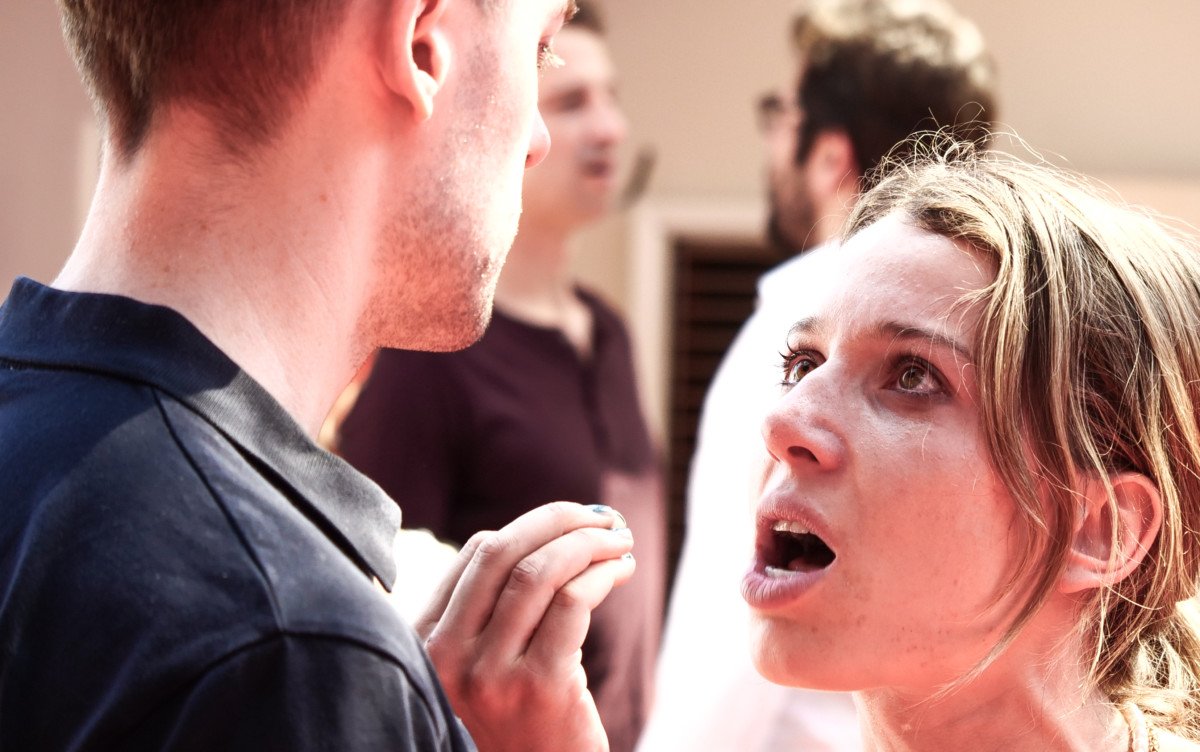
The AM or PM Monday classes are the Homework. This is where you learn to build on the technique of Lee Strasberg to bring more technique into the studio session. As well as you learn to work in your own space, as you will need to do self-taping or prep before going on set. You also expand your application into scene work. You only need to attend one Tech HOMEWORK class per week, but you are welcome to come to more each week; there is no extra charge. Classes run AM or PM, so there is flexibility to work around other demands.
The Studio gives the expansive space to build both technique and scene work. Homework is the primary place to build your foundation; the Studio is where you can play & create more with what is technically evolving. Acting is both personal and collective, so working from both spaces enables you to meet each step and each challenge.
METHOD NOV UNIT
Nov 10th – Dec 2nd
METHOD STUDIO Week 1
Friday, Nov 10th 7-10 pm
Saturday, Nov 11th 10-6 pm
METHOD HOMEWORK Week 2
Monday 13th 10 – 12 noon 0r 7.30 – 9.30 pm (Technique)
METHOD STUDIO Week 2
Friday, 17th, 7-10 pm
Saturday 18th 10-6 pm
METHOD HOMEWORK Week 3
Monday 20th 10 – 12 noon 0r 7.30 – 9.30 pm (Technique)
METHOD / VOICE & MOVEMENT STUDIO Week 3
Friday, 24th, 7-10 pm
Saturday 25th 10-6 pm Method
Sunday 26th 10-5 pm Voice & Movement
METHOD HOMEWORK Week 4
Monday 27th 10 – 12 noon 0r 7.30 – 9.30 pm (Technique)
METHOD STUDIO Week 4
Friday, Dec 1st 7-10 pm
Saturday 2nd Dec 10-6 pm
Homework
The dead space represents the initial sense of no natural external stimulation except the text itself. Alternatively, you could consider dead space and inert space. Requiring interaction from you to bring it to life. You have yet to create any relationship in such a primary space to feed off, just like when you receive a self-tape for an audition or prepare to work on a role you have booked. It is how you turn nothing into something. Although you only see obstacles at first, you find the means to unlock the opportunity.
About your instrument, the work is always primary. Each time you engage in relaxation and sense memory. Each time you work yourself experientially, you build and develop your instrument.
As important as the instrument is the relationship between text and character. Like the musician, you should pick up different music pieces to practice your craft and expand your vocabulary and understanding. Not to stick to the tunes that you know and like most. In the demands of the industry, this level of sketching sustains you when you have to make quick, creative choices.
Therefore, homework is your studio. Without this foundation, you cannot truly grow in this industry—the technical demands in the 21st-century present considerable challenges. Consequently, the challenge and discipline of homework are to build the muscles to create with such obstacles rather than just overcome them.
Studio Craft
The face-to-face work now has true meaning in the context of the homework. The primary homework preparation means that the studio space becomes a studio to explore and expand the primary work you have established in homework. It becomes a more organic opportunity to examine the potential of your instrument and your creative process where you can pull apart and engage both the character and the text—building a richer ability and a greater understanding of both yourself and the opportunities of acting.
This also expands into the important parts of an actor’s craft: VOICE & MOVEMENT. To fill the character, the role, and the text with your creative thoughts, impulses and emotions, you need the creative muscles that bring real shape and dynamics to your acting.
Studio Intensive
The intensity in the final three days replicates the challenges and opportunities of the camera or the stage. Now, you can bring both your primary and process work into the opportunity of two scene slots. Or to immerse and observe fellow class members reaching out to fulfil such a creative challenge. Everybody will work with sense memory and text in the morning, evolving the ability to work from your thoughts, impulses and emotions. To create from a heightened state of self while obtaining the lucidity of creative thinking.
The Choice
As Stanislavski said, talent is in the choice. Nothing is automatic, particularly in acting. The specific steps of the three-week unit are designed for you to properly engage and unlock your true creative potential. To develop the sensibility and creative muscles to take on the challenges and opportunities of the professional acting industry.
In straightforward terms, the three pillars in each unit are to see how you can raise your game.
Sam


